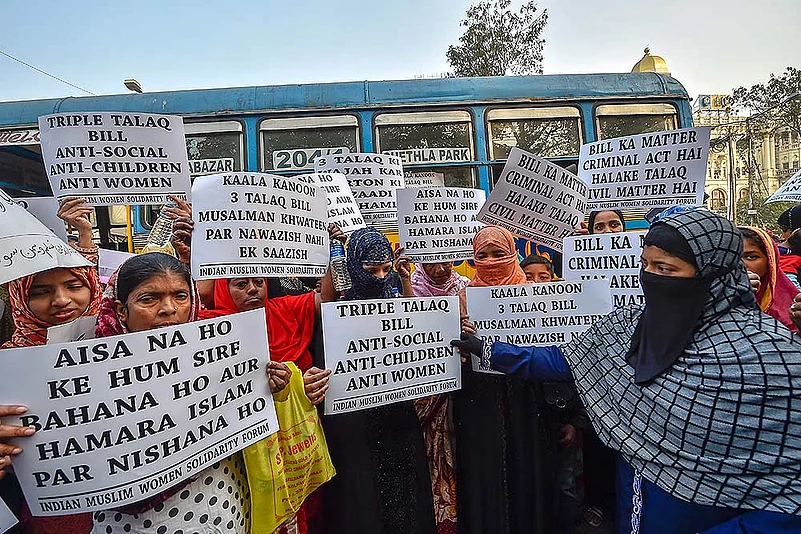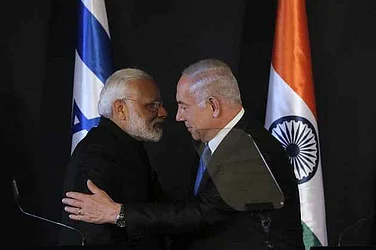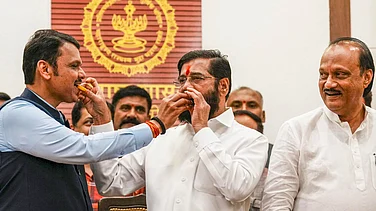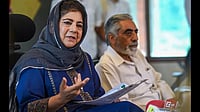“One of the marks of a progressive nation is the condition of its female population. Women too are stakeholders in this system and must become a substantial part of it.” -- This was said by Justice N V Ramana when he held the position of Chief Justice of India (CJI).
Over the past few years, women in India and across the world have fought for their rights -- be it regarding the right over their bodies, their right to enter a temple, gender justice, reproductive rights etc. Here is a look at five such policy reforms and legal fights that were brought about by persistent efforts of those who identify as a woman. While some of them have brought changes in the law, others still face hurdles in implementation.
Abortion rights
In a historic verdict in September 2022, the Supreme Court of India allowed minor females to abort their pregnancies from consensual sex without disclosing their identity to the police.
The top court also included unmarried women under the ambit of those who can abort pregnancy between 20-24 weeks under the Medical Termination of Pregnancy Act (MTP), saying that limiting the provision to cover only married women will render it discriminatory and violative of Article 14 of the Constitution of India, which deals with the fundamental right to equality.
The same judgment also recognised martial rape by stating that the definition of the offence of rape must include ‘marital rape’ for the purpose of the MTP Act. “Married women may also form part of survivors of sexual assault or rape. A woman may become pregnant due to a non-consensual act by the husband. Sex and gender-based violence in all its form has been part of families,” a Hindustan Times report quoted Justice Chandrachud as saying.
Sabarimala
In another landmark decision, the Supreme Court lifted the ban on women entering the Sabarimala shrine in Kerala’s Pathanamthitta district. The temple traditionally prohibited women of menstruating age - 10 to 50 years - from entering due to a belief that the deity, lord Ayyappan, is celibate.
Justice Chandrachud supported the right of women in the aforementioned age group to visit the Sabarimala Temple and held that not allowing them to enter was a violation of constitutional morality.
Such a rule, he held, subverted the autonomy, liberty, and dignity of women. In a significant move, he also noted that the move to disallow women of menstruating age to enter a religious place was in violation of Article 17 which prohibits "untouchability", noting that such a ban signifies a notion of impurity in women.
Triple Talaq
In 2017, the Supreme Court ruled that the practice of Triple Talaq is void and illegal. The Muslim Women (Protection of Rights on Marriage) Bill was passed by the parliament on July 30, to be made into a law that criminalised instant triple talaq.
Clause 3 in Chapter 2 of the Act states that, “Any pronouncement of talaq by a person upon his wife, by words, either spoken or written or in electronic form or in any other manner whatsoever, shall be void and illegal”. The same clause also stated that, “whoever pronounces Triple Talaq upon his wife shall be punished with imprisonment for a term which may extend to three years and fine”.
However, years after the practice was struck down, reports of the law not being translated into reality onto the ground have come to the fore.
Gender bias in armed forces
The Supreme Court in 2020 ruled that women officers in the army be given permanent commission, adding the government must change its mindset to end gender bias in armed forces, in a legal battle that lasted for over 12 years.
The top court was hearing the Centre's plea challenging the Delhi High Court's directions passed in 2010 to grant permanent commission to women officers in Indian Army.
A bench headed by Justice D Y Chandrachud rejected the Centre's argument of physiological limitations and social norms for denying them permanent commission and command postings, saying it is disturbing and against the concept of equality. The top court said even after 70 years of post-colonial era, there is a need for change in mindset with regard to giving equal opportunity to women officers in the Indian Army.
Hijab verdict
A group of girl students from Udupi in Karnataka have been leading the fight against the hijab ban in the state's schools ever since the state high court upheld the ban in February 2022. A two-judge bench of the Supreme Court in October last year gave a split verdict on the petitions challenging the Bharatiya Janata Party (BJP)-run Karnataka's ban on girls and women wearing hijab in classrooms.
While Justice Hemant Gupta, since retired, had dismissed the appeals challenging the March 15 judgement of the Karnataka High Court which had refused to lift the ban, Justice Sudhanshu Dhulia held there will be no restriction on the wearing of hijab anywhere in the schools and colleges of the state.
Focussing on the plight of girl children in educational institutions, Dhulia stated that the ban would hinder their access to secular education and violate their Right to Equality by imposing an additional burden on them. The onus was then on the Chief Justice of India to assign the case to a 3-judge bench so that fresh hearings can take place.
However, an urgent hearing of the case hasn't happened so far.






















